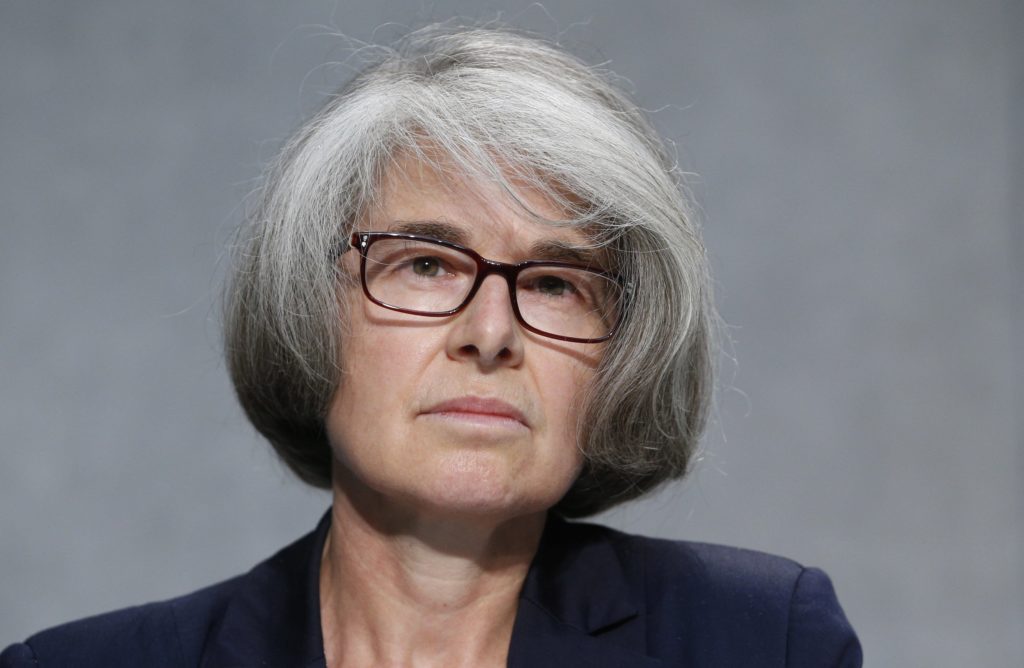Growth toward becoming a "synodal church," one in which all the baptized accept and share responsibility for their unity and mission, can get messy, and that should not frighten people, said one of the undersecretaries of the Synod of Bishops.
"What we see with the synod is that the church is learning to face, to name and to be with the tensions, the polarities, the diversity" found among Catholics within parishes and across the globe, "and not just sweep them under the carpet," said Xavière Missionary Sister Nathalie Becquart.
The process for the Synod of Bishops, like the sessions of the Second Vatican Council, is marked by theological, cultural and practical differences, she said, but she is confident that by listening to the Holy Spirit, listening to each other and being patient, consensus will prevail as it did at Vatican II.
Sister Becquart spoke to Catholic News Service Oct. 14, just before she and the synod's top leadership had a private meeting with Pope Francis.
The meeting came three days after the pope celebrated a Mass marking the 60th anniversary of the opening of the council and pleaded with Catholics to resist the temptations of division, "quarrels, gossip and disputes."
Synodality is the way forward, Sister Becquart said, pointing to Pope Francis' explanation in the book "Let Us Dream":
"We need a respectful, mutual listening, free of ideology and predetermined agendas. The aim is not to reach agreement by means of a contest between opposing positions, but to journey together to seek God's will, allowing differences to harmonize. Most important of all is the synodal spirit: to meet each other with respect and trust, to believe in our shared unity and to receive the new thing that the Spirit wishes to reveal to us."
Before the end of October, the synod office will release its "Document for the Continental Phase" of the synod, echoing the themes that emerged from all the national syntheses of synod listening sessions and the contributions of religious orders, Catholic movements, Vatican dicasteries and nuncios from around the world.
"It's a working document," Sister Becquart said. People who participated in the listening sessions will be asked to read it, pray about it and share their reactions with their national synod coordinators. Then bishops, priests, religious and laity representing the church in their country will meet with representatives from other countries in their region to discuss what "resonates" with them or what they believe is missing.
The idea, she said, is that the synod is not just a one-way process from the grassroots up to the "top," which would be the assembly of the Synod of Bishops in October 2023 and the assembly's recommendations to the pope. Rather, the process is "circular," because a key part of "synodal ecclesiology that comes from Vatican II" sees an "intrinsic link between the local churches and the universal churches" and aims to deepen that relationship.
In the document for the continental phase, the synod office is returning results to the local level, checking that they were heard and asking them to broaden their reflection with people in neighboring countries.
The Synod of Bishops and, especially, the vision of "synodality" is one of "the fruits of Vatican II," she said, but they are also paths that can help the church and its members receive and experience some of the key insights of the council.
Sister Becquart pointed particularly to how, with all the Catholic bishops of the entire world gathered in Rome in four sessions from 1962 to 1965, the council was the most concrete experience ever of the church being universal. And its focus on the church as "the people of God" rather than primarily as an institution and its emphasis on the dignity and responsibility of all the baptized are being rediscovered in the synod process, she said.
And, she said, while the 16 documents approved by the council are essential reading, people should not forget that for the participants, the Second Vatican Council was "a human, spiritual and ecclesial experience," which is clear from the published diaries of so many of them.
The national reports indicate something similar was happening to many of the people participating in the local listening sessions, she said.
As the process continues, bumps in the road are expected, she said, because "it's a new way to relate to each other, a new kind of communication and relationship dynamic in the church," particularly between bishops and laity.
"It is, as we say, a work in progress."

